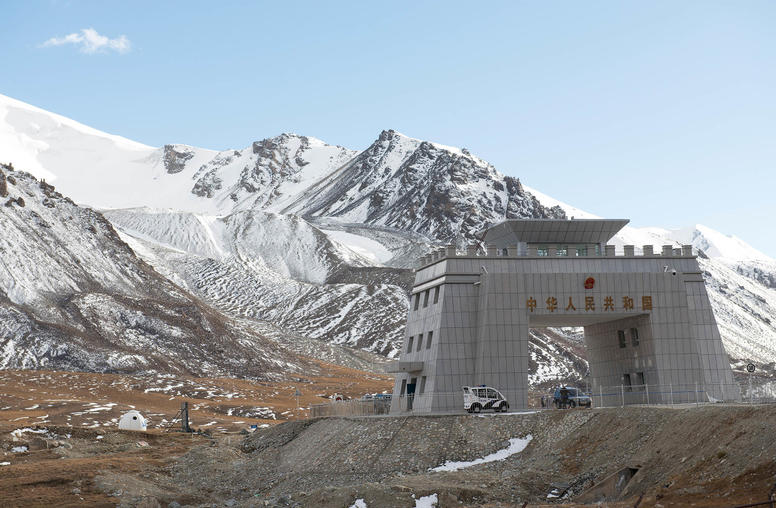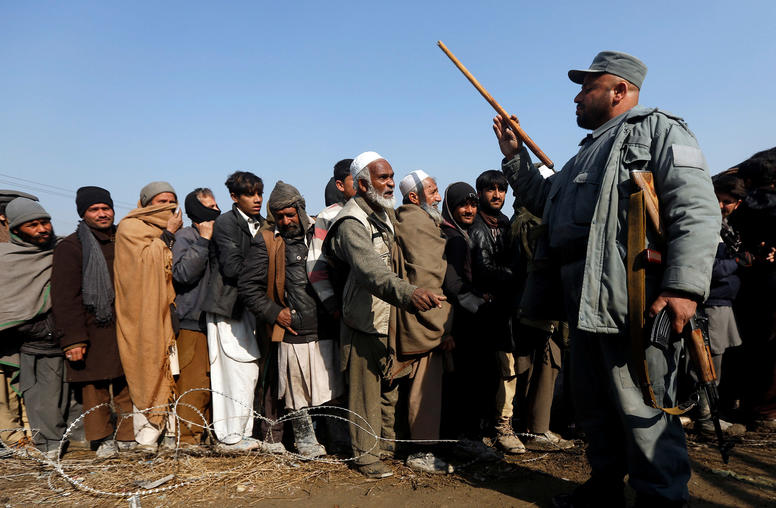Publications
Articles, publications, books, tools and multimedia features from the U.S. Institute of Peace provide the latest news, analysis, research findings, practitioner guides and reports, all related to the conflict zones and issues that are at the center of the Institute’s work to prevent and reduce violent conflict.

Engaging the Post-ISIS Iraqi Religious Landscape for Peace and Reconciliation
Religious actors in Iraq wield considerable influence, and Iraqis perceive them as playing an important role in moving the country toward peace. This report analyzes the influence of Iraq’s religious actors—who has it, why they have it, and how they exercise it—to illuminate their crucial role in supporting peace and reconciliation efforts and to help policymakers and practitioners understand how to engage them in efforts to advance peace.

Engaging the Post-ISIS Iraqi Religious Landscape for Peace and Reconciliation (Arabic)
Religious actors in Iraq wield considerable influence, and Iraqis perceive them as playing an important role in moving the country toward peace. This report analyzes the influence of Iraq’s religious actors—who has it, why they have it, and how they exercise it—to illuminate their crucial role in supporting peace and reconciliation efforts and to help policymakers and practitioners understand how to engage them in efforts to advance peace.

Nancy Lindborg on the Role of People Power in Global Security
Returning from the Halifax International Security Forum, USIP President and CEO Nancy Lindborg explains why the growing number of “people power” movements around the world have left her optimistic, saying “the notion of what constitutes national security continues to evolve…security includes governments that are responsive to the needs of their people.”

Steve Hege on Colombia’s Protests and Stalled Peace
In Colombia, protesters are demanding that President Ivan Duque address concerns over economic inequality, corruption, the Venezuela crisis and implementation of the 2016 FARC peace accord in what USIP’s Steve Hege calls the country’s “largest mass mobilization in four decades.”

Frank Aum on the Year in North Korea Diplomacy
With North Korea’s self-imposed, year-end deadline for a nuclear deal looming, USIP’s Frank Aum says that while complete denuclearization isn’t likely in the near term, “all of the components of a good-enough interim nuclear deal are there, but both sides need to be flexible on some of the harder issues.”

Strategic Implications of the China-Pakistan Economic Corridor
Great power politics is resurgent in South Asia today. China’s growing military ambition in the region is matched in financial terms by its Belt and Road Initiative, the largest and most advanced component of which is the China-Pakistan Economic Corridor. What remains unclear is how the United States should navigate the new dynamic. This report, which is based on research and consultations with experts worldwide, addresses the question of how the India-Pakistan rivalry will play into the emerging great power competition.

Maria Stephan on What We Get Wrong About Protest Movements
This year has seen an extraordinary rise in people power. Despite significant coverage of these movements, many misconceptions about how they work persist. USIP’s Maria J. Stephan addresses those myths and says, “The most defining variable of successful nonviolent movements is large, diverse and sustained participation.”

Dr. Elie Abouaoun on Iraq and U.S.-Iran Tensions
Following the attempted siege of the American Embassy in Iraq, USIP’s Elie Abouaoun says the U.S. must increase its presence in Iraq because it “doesn’t have the choice but to increase its investment … so that the expansion of Iranian influence is basically contained.”

Displacement and the Vulnerability to Mobilize for Violence: Evidence from Afghanistan
Forced displacement affects over 70 million people worldwide and is among the most pressing humanitarian and development challenges today. This report attempts to ascertain whether a relationship exists between displacement in Afghanistan and vulnerability to recruitment to violence by militant organizations. The report leverages an understanding of this relationship to provide recommendations to government, international donors, and others working with Afghanistan’s displaced populations to formulate more effective policies and programs.

Sarhang Hamasaeed on U.S.-Iran Tensions
Iran has stated that—barring a U.S. response—the missile attacks on U.S. bases in Iraq will be the only immediate retaliation for the killing of Soleimani. USIP’s Sarhang Hamasaeed says this latest development offers an exit from further escalation, but “this doesn’t mean the broader tensions and the slower, more simmering tensions … will end.”